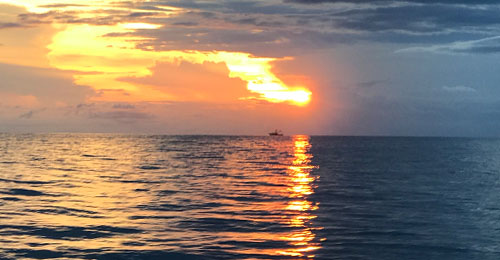NGOs seek changes to Bill 131 on fishing and aquaculture regulations

November 2 2020 environmental and scientific organizations called on the President to issue a "partial veto" of bill 131, which was approved April 13th 2020 to regulate fishing and aquaculture.
While Arap administrator Flor Torrijos described the bill as “historic”, Members of the scientific and environmental community expressed that "decisions were made hastily in the third debate" leaving vital voices out of the conversation.
Isaías Ramos, a biologist at the Center for Environmental Incidence stated:
“the law sets aside the scientific and technical support, violate the principles of participation and non-compliance and signals a regression in environmental matters.” Ramos continues on the matter, “we need a fishing law, but one that is inclusive and sustainable, respectful of the entire population and the laws and commitments of the nation."
When Ramos speaks to the need for this law he is speaking to the fact that Bill 131 replaces the “Basic Fishing Law” no. 17 written in 1959, the need for an update is undeniable.
It is also clear that the goal of the bill, to help regulate and bring order to the fishing industry in Panama, is undermined by there are two major oversights.
These oversights are outlined in a letter signed by representatives of 10 NGOs, among them:
MarViva Foundation, Center for Environmental Incidence, MiMar Movement, Panama Audubon Society
National Association for the Conservation of Nature and The Alliance for Conservation and Development.
The letter states that "while the bill included positive and necessary issues for the fishing and aquaculture sector, there are two serious omissions and retrograde provisions:”
-
The Governing institution (ARAP) is weakened by eliminating its power to revoke licenses, concessions or fishing permits for those who violate fishing, aquaculture and marine management regulations. The approved bill allows the institution to act against international licenses, but excludes national licenses.
- The proposed law, reduces the fines established by Law 44 of November 2006. Previously, in the case of serious misconduct, there was a penalty from $ 10,000 to $ 1,000,000. Now fines are formuled at a rate of $20 per meters of length (length of a boat from the bow to The stern).
So, if the boat that committed the serious offence is 14 meters long, they $280. This is a major “setback” since the amount too low to deter misconduct.
Finally the letter spoke to the new laws reducing transparency and citizen participation by modifying the balanced representation of the members of the National Commission for Responsible Fisheries.
The legislations excludes representatives of non-governmental organizations of a marine environmental nature and organizations scientific research.
The note concluded with a plea:
“Mr. President, we trust that you, as the first citizen of Panama, will weigh these deficiencies of Bill 131 of 2020 approved in the National Assembly and put the best interests of the country first. This law, which was born out of necessity and provides important elements to comply with issues that require regulation, is tarnished when in its final, hasty and non-inclusive debate, it included serious inaccuracies and mistakes.”
Source La Prensa
Read More:
NGOs ask Cortizo for Partial veto of fishing Law
Representatives of the fishing sector reach consensus on the bill that regulates the activity
Source ARAP
Read More:
REPUBLIC OF PANAMA MINISTRY OF AGRICULTURAL DEVELOPMENT Executive Decree No. 131
Trending Tags
